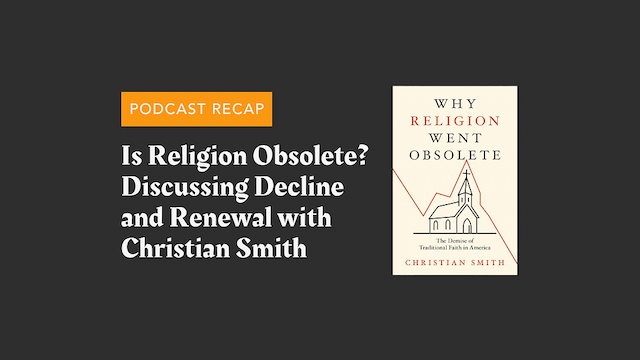Sing Your Faith: Martin Luther's Worship Reforms

When I mention Martin Luther, what are your first thoughts? Often, people know he posted The 95 Theses on the chapel door in Wittenberg (Saxony) on October 31, 1517. Many people also know Luther’s Five Sola’s: Sola Gratia (By Grace Alone), Sola Fida (Through Faith Alone), Solus Christus (In Christ Alone), Sola Scriptura (According to Scripture Alone), and Soli Deo Gloria (For God’s Glory Alone). But did you know that Luther’s reform focused strongly on worship practices? He advocated for the inclusion of vernacular worship (to allow singing in the local language) as opposed to only allowing Latin to be sung in church, which was occurring in Catholic services. Through this emphasis, Luther encouraged more congregational singing, which was not happening as standard practice before 1517. We owe a debt of gratitude to Luther for his efforts in reforming sacred congregational singing—a practice we still encourage today.
Luther, an ordained Catholic priest, challenged the authority of the Catholic Church in the early-to-mid-sixteenth century on many fronts. I will focus on the area of his worship reform, in which Luther argued that Christians should be allowed and encouraged to sing their faith. The idea of singing one’s faith had fallen into disuse during the Middle Ages as Catholic services were offered only in Latin, the language of Rome, and most people did not understand it. Since most of society was illiterate, parishioners couldn’t understand or participate in worship. Luther aimed to translate Latin hymns into German, and even compose his own hymns so believers could sing their faith. Because the printing press had recently been invented, Luther distributed his translations and compositions to other sympathetic reformers throughout Germany.
Luther utilized a common form of song in the folk culture of Saxony at the time: bar form. Herein lies a common misconception regarding Luther’s tunes. He did not utilize “bar tunes,” meaning songs sung in the local tavern. Rather, he used a style of music called “bar form,” in which there were three stanzas, with the first two stanzas using the same melody, and the third stanza using a different melody. This style was popular among the meistersingers and minnesingers of the day, and most people were familiar with the tunes from these folk singers. By utilizing this common form of music, Luther was, “ensuring that his song would be given a receptive hearing.”[1]
To avoid attributing Luther with something he did not do, we cannot make the argument that Luther advocated for popular music as found in today’s society. Luther existed centuries before popular culture existed. Luther lived, wrote, and composed within his secluded folk culture, an inherently different construct than what we live in today. To promote Luther as someone who would allow any form of music into his church is to fall subject to the fallacy of anachronism. Carl Trueman helpfully describes how the fallacy of anachronism works: “Ideas are abstracted from their historical contexts; later criteria, which were inapplicable at the time the ideas developed, are used to judge their coherence; meanings and significance are read back into earlier ideas, texts, and philosophies, which were not really there at the time.”[2] In light of this definition, we see that there is limited relation between the folk culture Luther lived in, and Western civilization today; thus, the argument that Luther would allow any kind of music in his church is an anachronistic fallacy.
The Hymns of Luther
As Luther continued to write and preach throughout his life, it is important to remember that he did not set out to create the Protestant Reformation. Instead, he wanted to reform the practices utilized in the Catholic Church. To this end, he was the only reformer who wrote a mass in German, the Deutsche Messe, so the congregation could participate in worship. This was not well-received by Catholic clergy at the time, and Luther was continually hindered by inadequate theological expressions of only writing within the confines of the mass structure (Kyrie, Gloria, Credo, Sanctus, Agnus Dei). It was then that he sought capable poets who could effectively communicate correct theology in poetry. Luther encouraged poets to use “only the simplest and the most common words” in their compositions so that most people would feel comfortable to participate.[3] Luther would set the texts, written by himself and other poets, to common tunes utilized by the meistersingers. This utilization of numerous texts being set to one melody was popular in the folk tradition of his day and continues in our hymn books today.
As time progressed and Luther continued his theological pursuits, he moved from the form of the Catholic mass to hymns like we know them today, set in the language of the local people. His most popular text is “A Mighty Fortress is our God,” written in 1529.
A mighty fortress is our God,
a bulwark never failing;
our Helper He, amid the flood
of mortal ills prevailing.
For still our ancient foe
doth seek to work us woe;
his craft and pow'r are great,
and, armed with cruel hate;
on earth is not his equal.
Did we in our own strength confide,
our striving would be losing,
were not the Right Man on our side,
the Man of God's own choosing.
Dost ask who that may be?
Christ Jesus, it is He;
LORD Sabaoth His name,
from age to age the same,
and He must win the battle.
And tho' this world, with devils filled
should threaten to undo us,
we will not fear, for God hath willed
His truth to triumph through us.
The prince of darkness grim,
we tremble not for him;
his rage we can endure,
for lo, his doom is sure;
one little word shall fell him.
That Word above all earthly pow'rs
no thanks to them abideth;
the Spirit and the gifts are ours
through Him who with us sideth.
Let goods and kindred go,
this mortal life also;
the body they may kill:
God's truth abideth still–
His kingdom is forever!
If you know Luther’s biography, you know that he often went into hiding as leaders in the Catholic Church sought his demise. But from those times, Luther penned some of the most profound hymn texts borne from his anxious soul. Another of his hymns is “Out of the Depths I Cry to Thee” from 1524, which is a paraphrase of Psalm 130:
From depths of woe I cry to Thee,
Lord, hear me, I implore Thee.
Bend down Thy gracious ear to me;
my prayer let come before Thee.
If Thou rememb'rest every sin,
if naught but just reward we win,
could we abide Thy presence?
Thy love and grace alone avail
to blot out my transgression;
the best and holiest deeds must fail
to break sin's dread oppression.
Before Thee none can boasting stand,
but all must fear Thy strict demand
and live alone by mercy.
Therefore my hope is in the LORD
and not in mine own merit;
it rests upon His faithful word
to them of contrite spirit
that He is merciful and just;
this is my comfort and my trust.
His help I wait with patience.
And though it tarry till the night
and till the morning waken,
my heart shall never doubt His might
nor count itself forsaken.
Do thus, O ye of Adam's seed,
ye of the Spirit born indeed;
wait for your God's appearing.
Though great our time and sore our woes,
His grace much more aboundeth;
His helping love no limit knows,
our utmost need it soundeth.
Our Shepherd good and true is He,
who will at last His people free
from all their sin and sorrow.
Ultimately, Martin Luther wrote a handful of hymns, including a few of which are still in our hymnals today. His first hymnbook, published in 1523/1524, contained eight hymns, four of which he wrote. Luther often gathered his wife and children for family worship and utilized the hymns that were being written at the beginning of the Protestant Reformation. We owe much to Luther’s bravery and determination in developing congregational singing in a hostile environment. May we never take for granted the privilege and joy we have in singing our faith.
For further reading on this topic, see Robin Leaver’s The Whole Church Sings: Congregational Singing in Luther’s Wittenberg.
References:
[1] Robin A. Leaver, The Whole Church Sings: Congregational Singing in Luther’s Wittenberg (Grand Rapids, MI: Eerdmans, 2017), 60.
[2] Carl Trueman, Histories and Fallacies: Problems Faced in the Writing of History (Wheaton, IL: Crossway, 2010), 116.
[3] Leaver, The Whole Church Sings, 74.
Kim has been married to her college sweetheart, Jason, for 24 years and they have one son who is a high school senior. Most recently, Kim completed her Ph.D in Church Music and Worship from Southwestern Baptist Theological Seminary. She has presented at Evangelical Theological Society and The Society of Christian Scholarship in Music, and her works have appeared in The Hymn, Artistic Theologian, and Baptist History and Heritage Journal.










